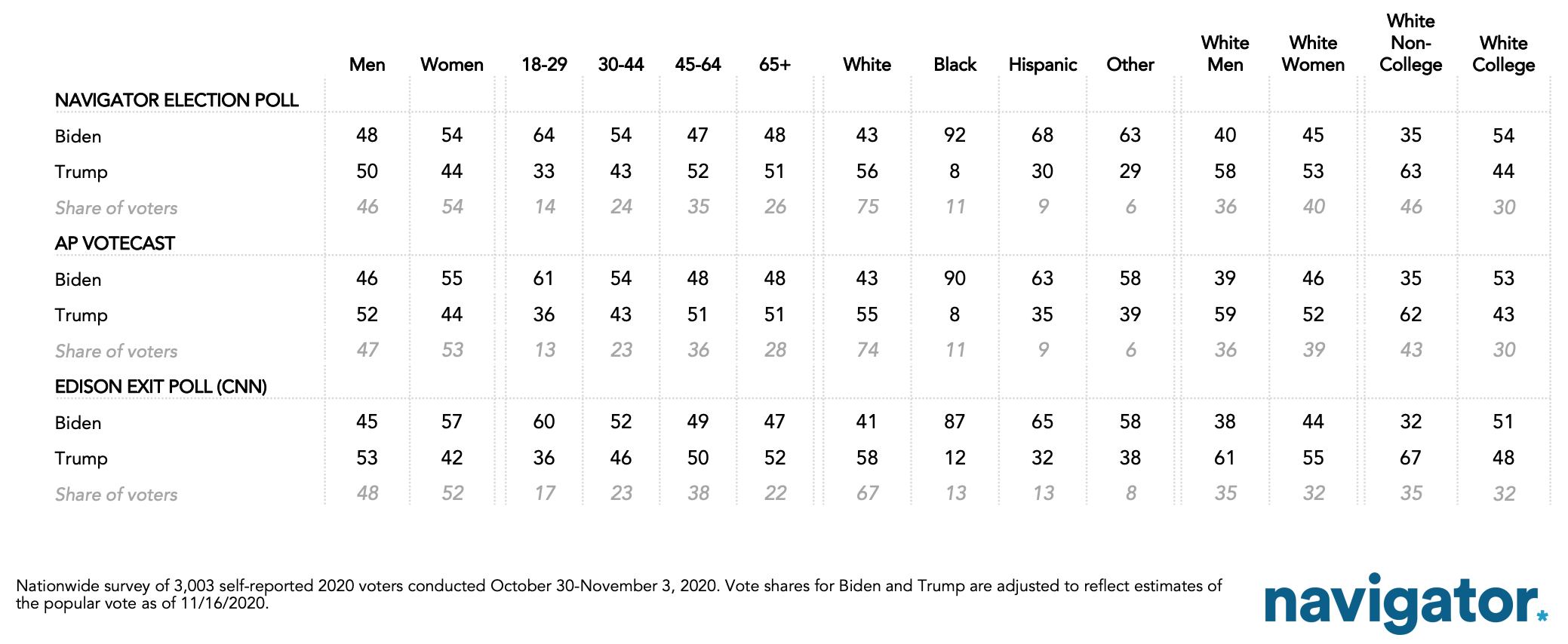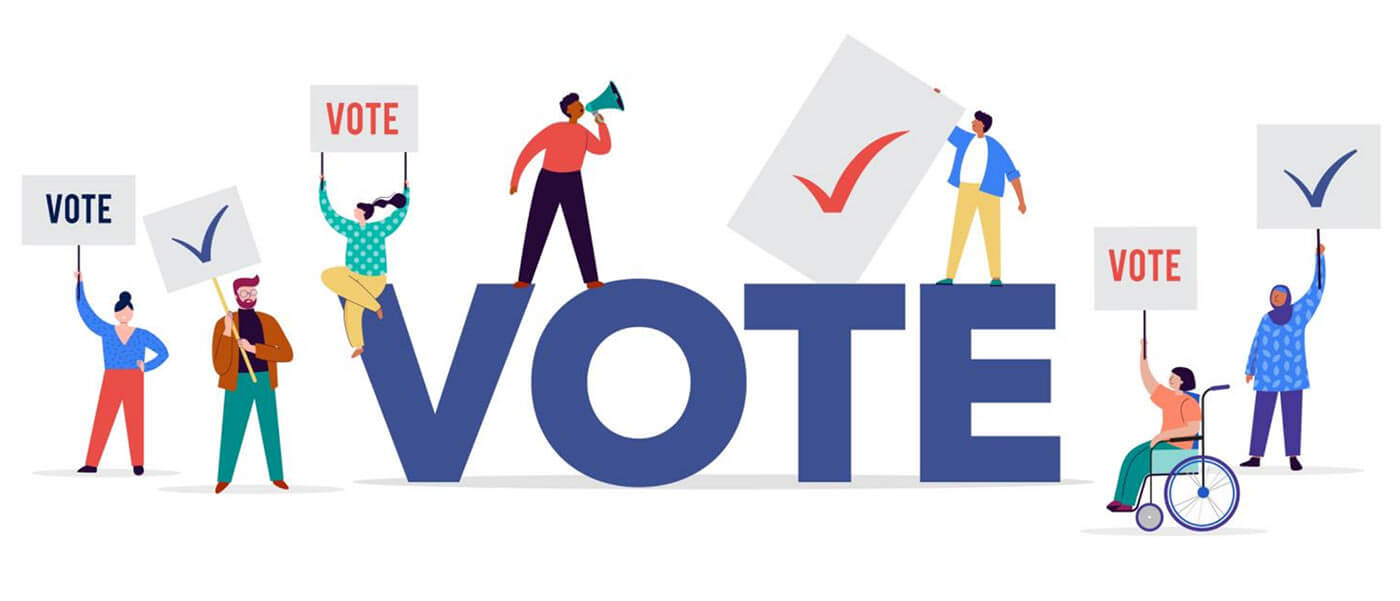Welcome to NAVIGATOR – a project designed to better understand the American public’s views on issues of the day and help advocates, elected officials, and other interested parties understand the language, imagery, and messaging needed to make and win key policy arguments.
This release features findings from a national online survey of 3,003 registered voters conducted October 30-November 3, 2020. The vote shares for Joe Biden and Donald Trump among self-reported 2020 voters were also adjusted to reflect a preliminary estimate of the national popular vote in the 2020 presidential election.
Key takeaways
- When asked about key debates in American life – from taxes, to health care, to racial justice – a plurality of 2020 voters side with progressive positions, and Democrats consolidated support with this group.
- Among voters supporting Biden who did not vote for Clinton in 2016, they also exhibited higher degrees of ideological consistency than voters who supported Trump for the first time this year.
- While there were fewer voters with strictly conservative views, Republicans remained competitive in this election because most voters who are both economically moderate and socially conservative continue to strongly back Republicans.
What We Did
The analysis is based on interviews with 3,003 registered voters who had already voted or planned to vote in the November election, with interviews conducted October 30th to November 3rd, 2020.
Support for Joe Biden and Donald Trump in the presidential election has been adjusted to reflect the actual expected popular vote as of November 16th. The analysis aims to provide a new tool for Americans to understand what happened in the 2020 election, why it happened… and what’s next.
Respondents Took a Position on a Series of Major Debates in Politics – Covering the Economy and Cultural/Social Issues
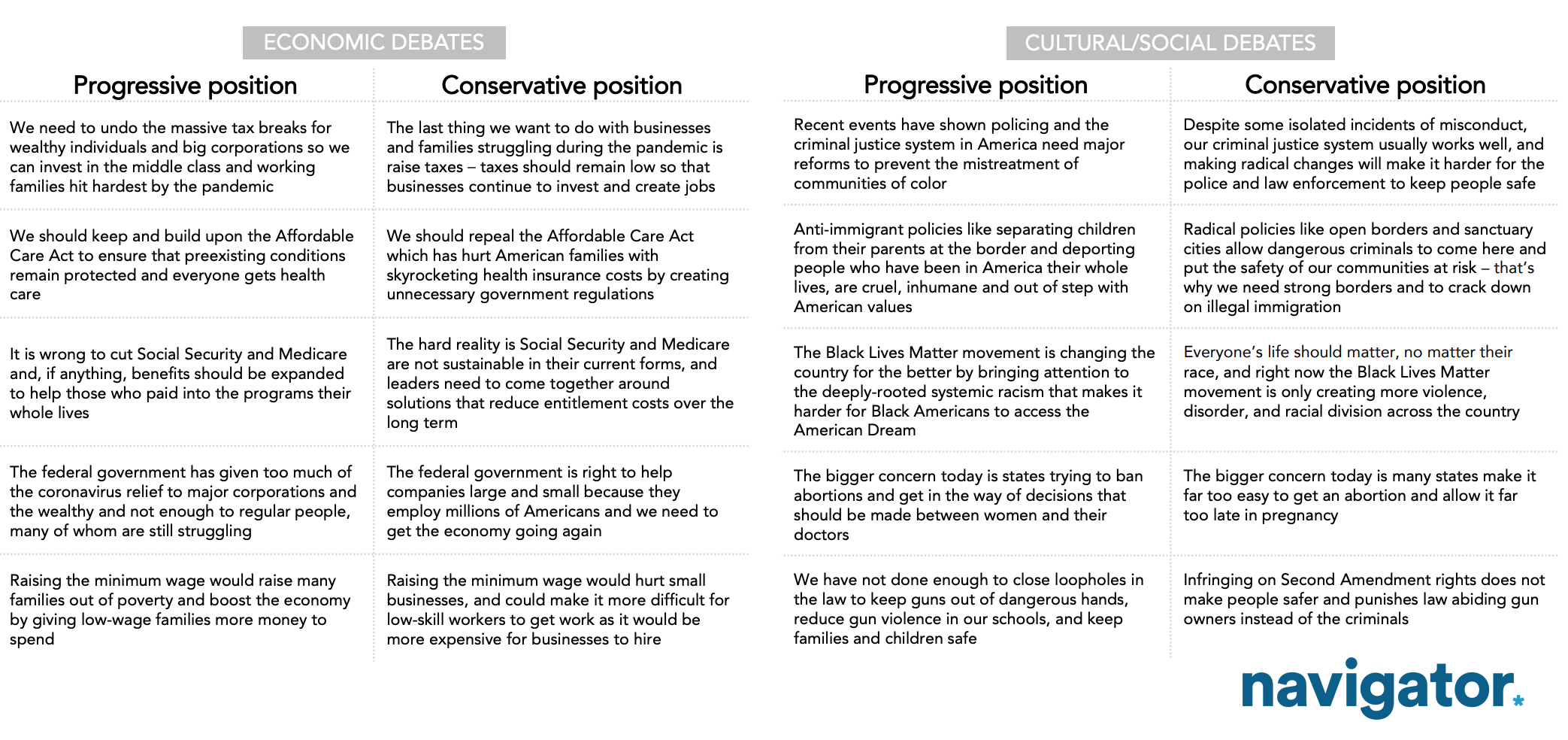
2020 Voters Span the Ideological Spectrum
Inspired by Lee Drutman’s Voter Study Group analysis in 2016, we placed 2020 voters on our ideological scale, comprised of the 5 economic debates and 5 cultural/social debates. Trump voters are more conservative and Biden voters more progressive on both sets of issues.
- However, among 2020 Trump voters, there is a wider distribution ideologically especially on economic debates as compared to the consolidation of Biden voters around progressive cultural/social and economic views.
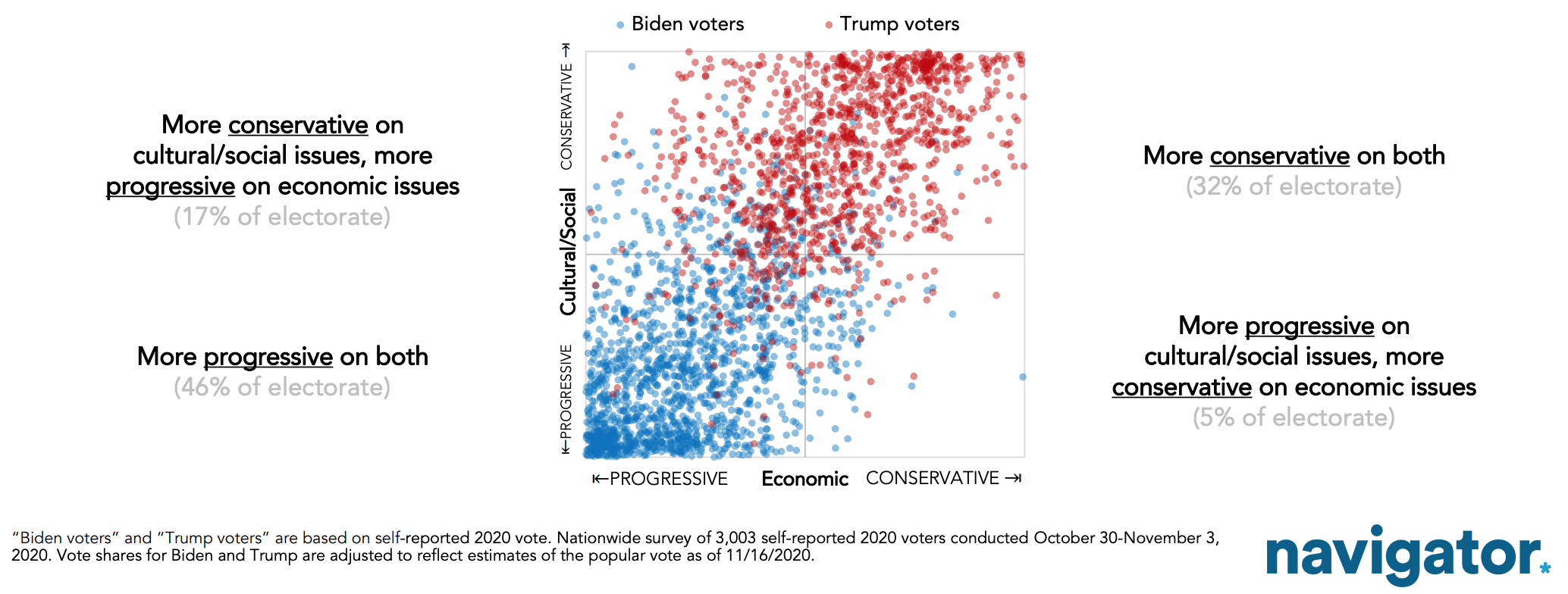
Biden Voters Hold Consistently More Progressive Views on Cultural/Social Issues Than Trump Voters
In the aggregate, Biden voters and Trump voters are deeply divided on all five cultural and social issues tested, including choice, guns, immigration, and racial justice.
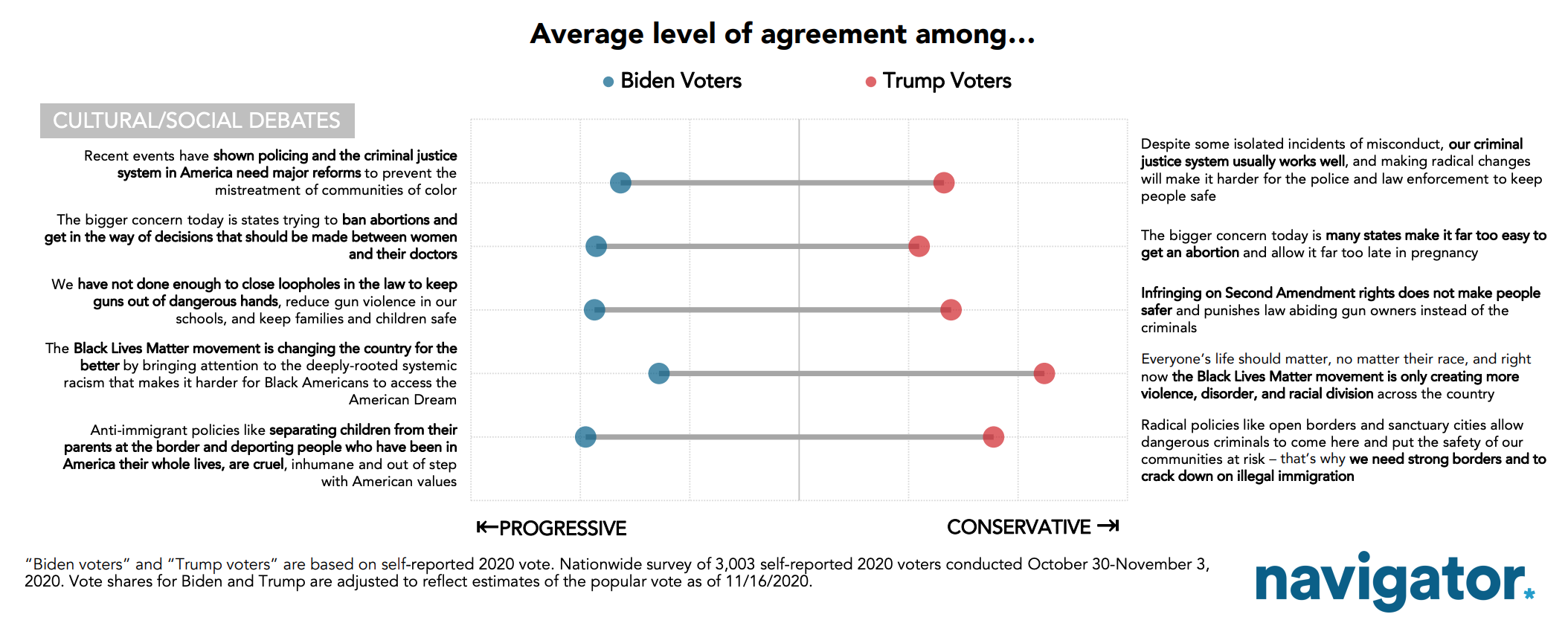
Trump Voters Break From a Strictly Conservative Point of View on Medicare and Social Security
On some issues related to the economy and personal finances, the average disagreement between Biden voters and Trump voters is relatively low.
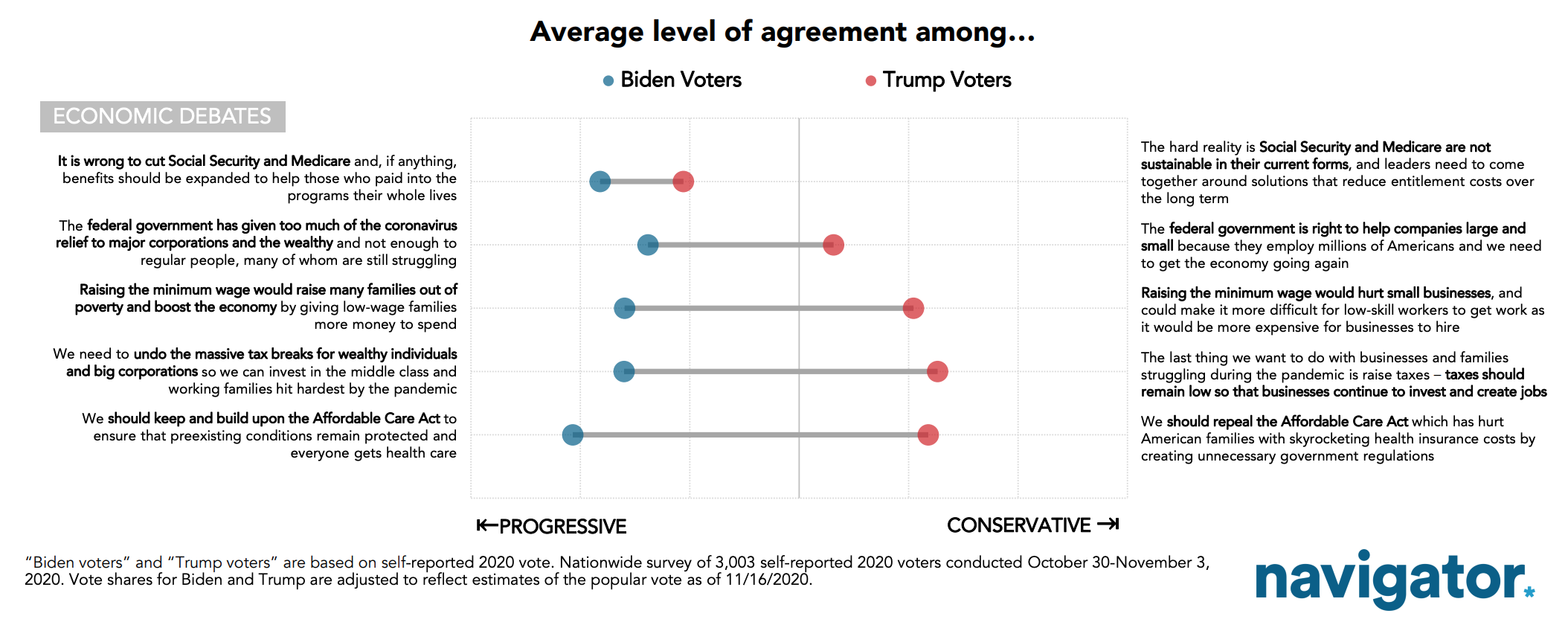
A New Generation of Progressive Voters Was Critical for Biden, While Trump’s Coalition Was More Fractured Ideologically
New Democrats were, like Biden voters overall, mostly consolidated around progressive economic and cultural/social issues. However, New Republicans showed a wider range of ideological views, again especially on economic metrics.
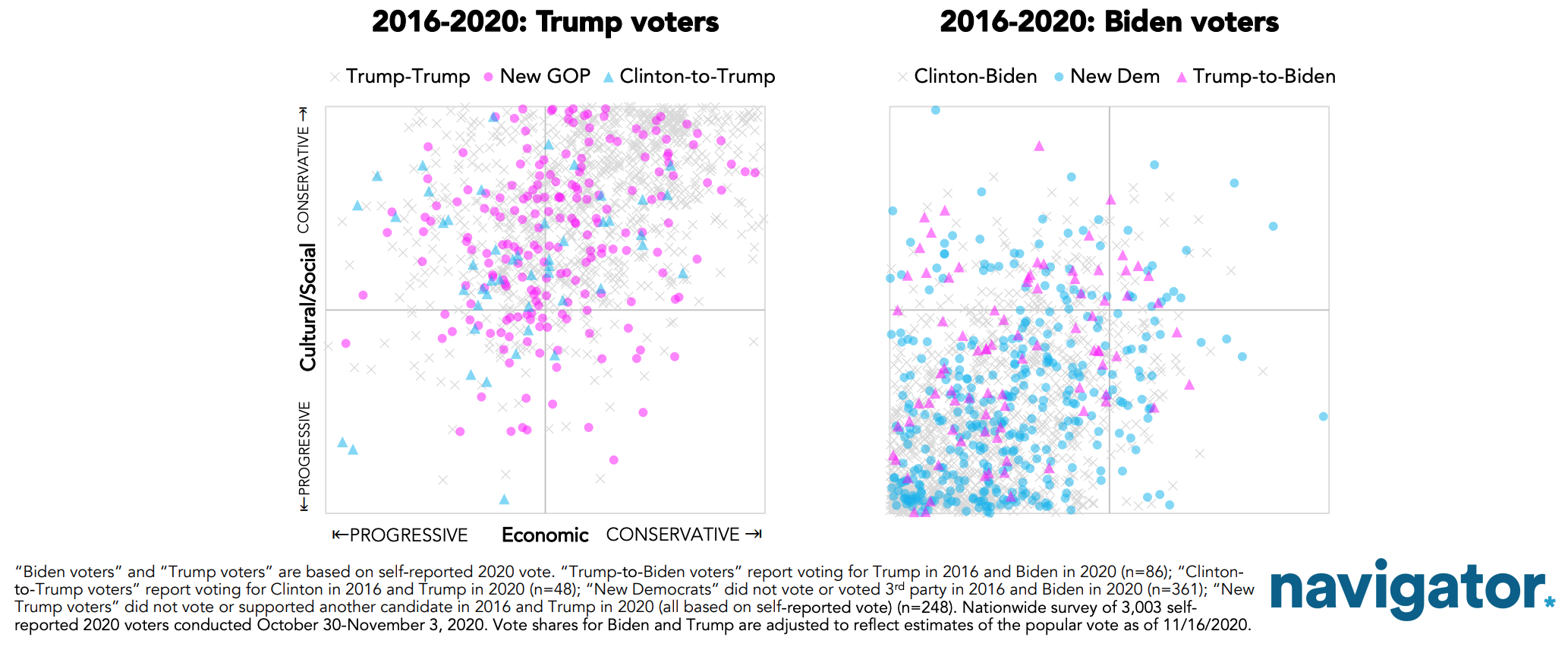
In Down Ballot Races, Ticket Splitters Also Tended to Be Cross-Pressured on Cultural and Economic Issues
While the vote for House candidates mostly mirrors the ideological split between Biden and Trump voters, ticket splitters have more moderate views on both economic and cultural/social issues.
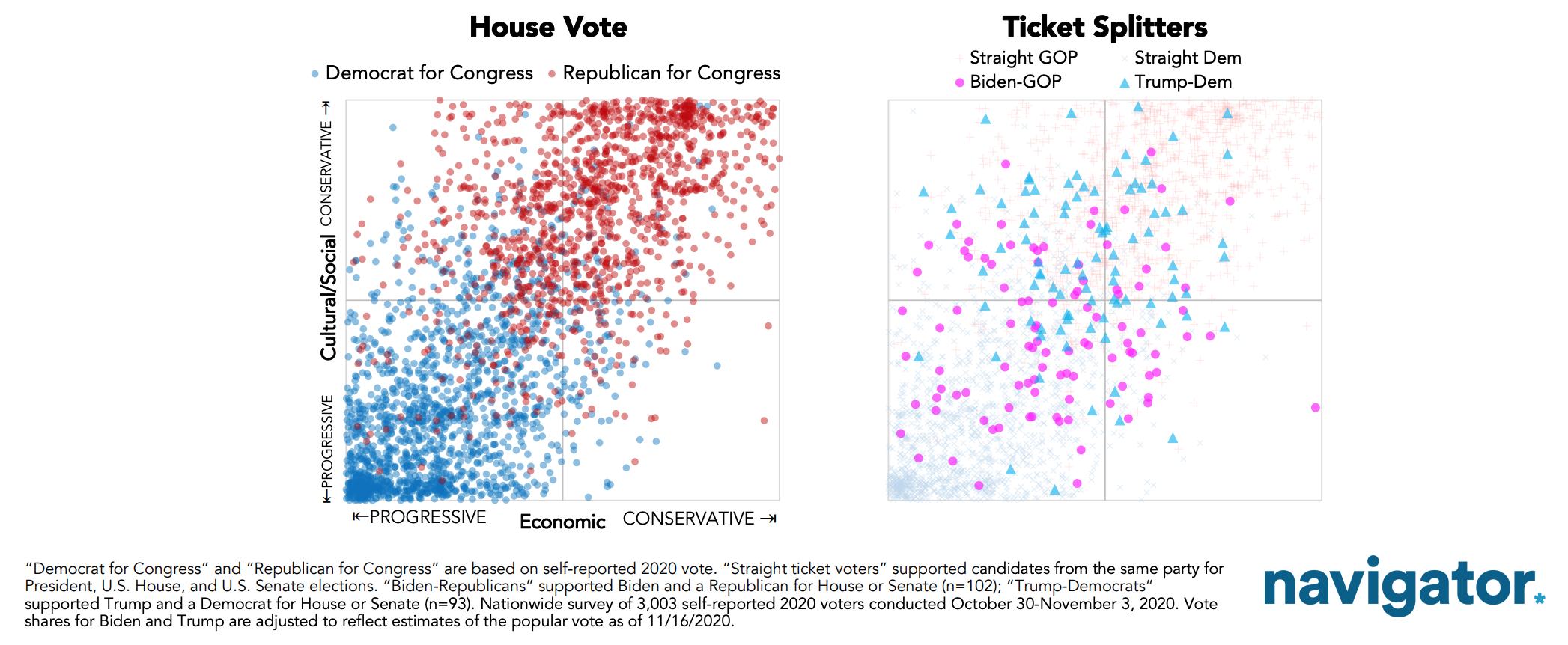
Plurality of Consistent Progressives Key to Democratic Wins, But Opportunities Remain on Ideological Margins
Almost half of 2020 voters fell on the culturally and economically progressive sides of our scale, and a third fell on the conservative sides of each. However, more than one in five hold a mix of progressive and conservative views.
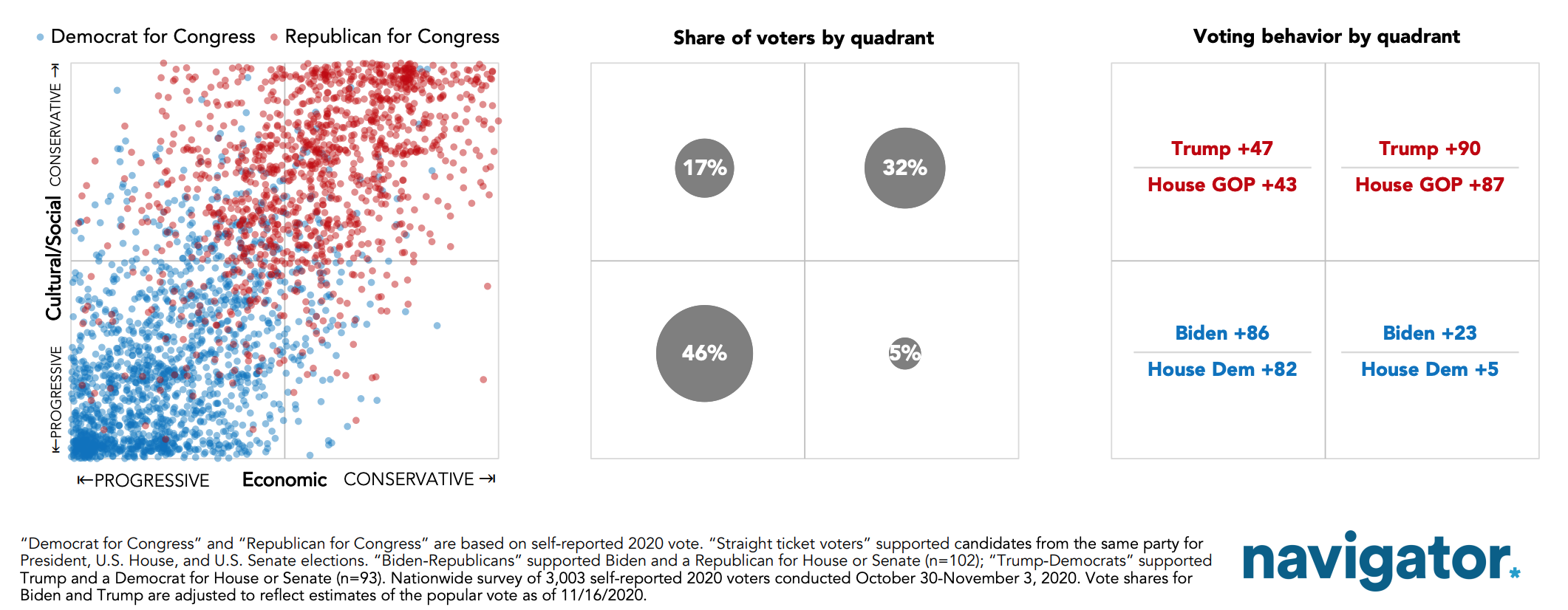
How Navigator’s Numbers Compare to AP VoteCast and Exit Polls
Broadly speaking, Navigator’s estimates of the presidential vote and the share of vote were closer to AP VoteCast than the Edison Exit Poll.
